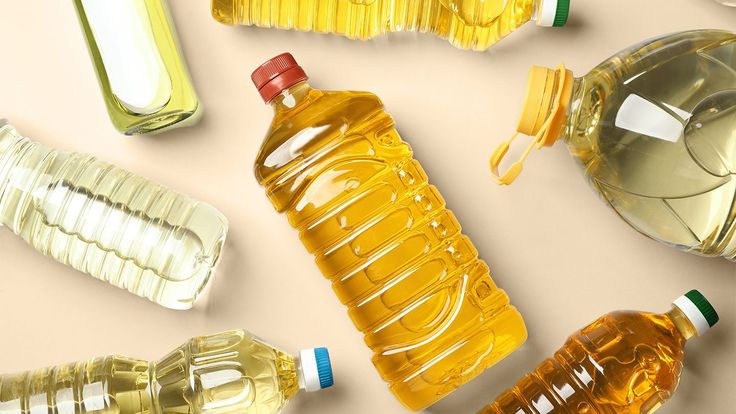Seed oils are everywhere. From packaged snacks to salad dressings and home-cooked meals, these oils have become staples in modern diets. But in recent years, they’ve also become a hot topic of debate. Are they as harmful as some claim, or do they play a neutral—even beneficial—role in our health? Let’s explore what the science says and separate fact from fiction.
What Are Seed Oils?
Definition and Examples
Seed oils are vegetable oils extracted from seeds. Common examples include sunflower, canola, soybean, and safflower oils. These oils are typically processed using high heat and chemical solvents to extract as much oil as possible.
Widespread Use in Food
Thanks to their affordability and long shelf life, seed oils are found in countless processed and packaged foods. They’re also popular in cooking for their versatility, from frying to baking. However, their ubiquity is part of what makes them controversial.
Read Also:
Fish Oil for Hair Health: Top Benefits and How to Use It Effectively
Why Are Seed Oils Under Scrutiny?
High Levels of Omega-6 Fatty Acids
One of the main criticisms of seed oils is their high omega-6 fatty acid content. While omega-6 fats are essential, excessive consumption—especially when paired with low omega-3 intake—may disrupt the body’s fatty acid balance. This imbalance has been linked to inflammation in some studies.
Processing Methods and Additives
Most seed oils undergo extensive processing, which often involves hydrogenation and chemical solvents. This can strip the oil of nutrients and introduce trans fats, which are known to be harmful to heart health.
Potential Health Concerns
When seed oils are exposed to high heat, they can oxidize, producing harmful compounds called free radicals. These free radicals have been linked to chronic diseases like heart disease and diabetes.
What Does the Science Say?
Studies Supporting Seed Oils
Not all research paints seed oils in a negative light. Studies show that polyunsaturated fats, which seed oils are rich in, can lower LDL (bad) cholesterol levels, reducing the risk of heart disease.
Studies Suggesting Risks
On the flip side, some studies associate high seed oil consumption with increased markers of inflammation and oxidative stress. However, these studies often point to the importance of dietary context rather than singling out seed oils as inherently harmful.
Balancing Perspectives
It’s crucial to view these findings in the broader context of overall diet. Seed oils, like any food, are neither wholly good nor bad; their effects depend on how they’re used and the balance of other nutrients in your diet.
Comparing Seed Oils to Other Fats
Seed Oils vs. Saturated Fats
Saturated fats, found in butter and coconut oil, have long been considered less healthy than polyunsaturated fats in seed oils. However, recent research suggests that moderate consumption of saturated fats may not be as harmful as once thought.
Seed Oils vs. Olive Oil
Olive oil, particularly extra virgin, is often considered superior due to its antioxidant properties and heart health benefits. Unlike most seed oils, it’s minimally processed and rich in monounsaturated fats.
Seed Oils vs. Animal Fats
Animal fats like lard and tallow have made a comeback in some health circles. They’re stable at high heat but lack the omega-3 and omega-6 balance that seed oils provide.
The Role of Seed Oils in Inflammation
Understanding Inflammation
Inflammation is a natural response to injury or illness, but chronic inflammation is linked to various diseases. The role of omega-6 fats in inflammation is complex, with some evidence suggesting they can both promote and reduce inflammatory markers.
Can Seed Oils Cause Inflammation?
Some studies suggest that excessive omega-6 intake may contribute to inflammation, but others find no significant link. The key may lie in balancing omega-6 with omega-3 fats, found in fish, flaxseeds, and walnuts.
Are All Seed Oils Created Equal?
Refined vs. Cold-Pressed Seed Oils
Refined seed oils undergo extensive processing, which can degrade their nutrient content. Cold-pressed oils retain more natural nutrients and are generally considered healthier.
Organic vs. Non-Organic Options
Organic seed oils are less likely to contain chemical residues from pesticides. Look for labels that certify organic and non-GMO options for better quality.
Practical Tips for Using Seed Oils
Choosing the Right Oil
For high-heat cooking, opt for oils with a high smoke point, like avocado or refined sunflower oil. Avoid using delicate oils, like flaxseed oil, for frying as they oxidize easily.
Balancing Your Fat Intake
Incorporate a variety of fats into your diet, including those from seeds, nuts, fish, and olive oil. Limiting processed foods can also help reduce your reliance on seed oils.
What Do Nutrition Experts Recommend?
Views from Leading Dietitians
Opinions on seed oils vary among experts. While some caution against overuse, others emphasize moderation and the importance of overall diet quality.
The Importance of Moderation
Instead of avoiding seed oils entirely, aim for balance. Focus on whole foods, limit fried and processed items, and prioritize minimally processed oils.
Conclusion
Seed oils have become a dietary staple, but their impact on health is far from black and white. While concerns about omega-6 fatty acids and processing methods are valid, seed oils can still be part of a balanced diet when used mindfully. The key is moderation and variety—because no single food makes or breaks a healthy lifestyle.
FAQs
1. What are the healthiest seed oils to use? Cold-pressed and organic options like sunflower or flaxseed oil are better choices.
2. Do seed oils cause weight gain? Seed oils themselves don’t directly cause weight gain, but overconsumption of calories, including from oils, can lead to weight gain.
3. Can I completely eliminate seed oils from my diet? It’s possible but not necessary. Focus on reducing processed food intake instead.
4. How do seed oils compare to coconut oil? Coconut oil is rich in saturated fats and better for high-heat cooking but lacks the polyunsaturated fats found in seed oils.
5. Are there alternatives to seed oils for high-heat cooking? Avocado oil and refined olive oil are excellent alternatives with high smoke points.


